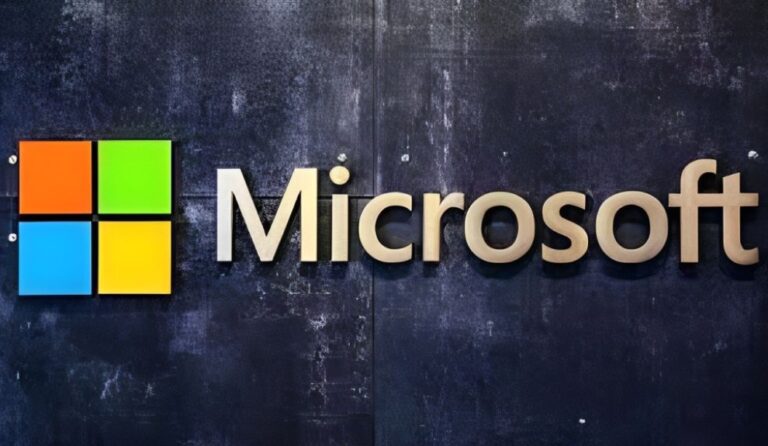Can AI Make Your Job Application More Inclusive?
The role of Artificial Intelligence (AI) in various aspects of the workplace has expanded significantly in recent years. One area where AI is making notable progress is in enhancing the inclusivity of job applications. While there are ongoing discussions about the potential risks of AI, its impact on promoting diversity and inclusion in the hiring process is undeniable.
This article explores how AI can help companies foster inclusivity in job applications, mitigate unconscious bias, and improve the overall recruitment experience.
How AI Enhances Inclusivity in Job Applications
1. Removing Bias in Screening Processes
One of the biggest challenges companies face in creating an inclusive recruitment process is dealing with unconscious bias. Unconscious bias can emerge in the initial stages of recruitment when applications are screened by humans. Recruiters may unknowingly make judgments based on a candidate’s name, gender, or background, affecting their chances of being shortlisted for an interview.
AI can help eliminate these biases by anonymizing applications during the screening process. By removing identifiers such as names, addresses, and demographic details, AI allows recruiters to focus solely on candidates’ qualifications, skills, and experiences. This can help level the playing field for all applicants and increase the chances of a more diverse talent pool making it to the interview stage.
2. Creating Inclusive Job Descriptions
Job descriptions are often the first point of contact between candidates and potential employers. However, the language used in these descriptions can unintentionally exclude certain groups of people. For example, some job listings may use overly masculine terms that discourage female candidates from applying, or they may include jargon that alienates non-native speakers or individuals from different cultural backgrounds.
AI-powered tools can help companies create more inclusive job descriptions by analyzing the language used and suggesting alternatives. These tools can detect biased or exclusionary language and recommend more neutral terms, ensuring that the job descriptions appeal to a broader range of candidates. This step can contribute to more equitable hiring practices and improve the diversity of applicants.
Improving Accessibility in Job Applications
1. AI-Powered Tools for People with Disabilities
Accessibility is a critical aspect of inclusivity, especially regarding job applications. Traditional application processes may present challenges for individuals with disabilities, such as visual or hearing impairments. AI can help bridge these gaps by offering tools like text-to-speech systems for the visually impaired or speech-to-text solutions for those with hearing difficulties.
These AI-driven tools ensure that job applications are accessible to all candidates, regardless of their physical abilities. Companies that leverage such technologies can create a more inclusive recruitment process and attract a wider variety of applicants, ultimately building a more diverse workforce.
2. Enhancing the Candidate Experience
A positive candidate experience ensures all applicants feel valued and included throughout the recruitment process. AI can enhance the candidate experience by streamlining application procedures and offering personalized feedback. For instance, AI-driven chatbots can provide real-time updates on an application’s status or answer common questions from candidates.
Additionally, AI can offer personalized job recommendations based on a candidate’s skills, preferences, and career goals, ensuring they are matched with opportunities that align with their qualifications. This level of personalization not only improves the overall candidate experience but encourages a broader range of applicants to engage with the company’s job offerings.
Moreover, an AI cover letter generator can help applicants highlight their relevant skills and experiences, reducing the impact of unconscious bias in the application process.
3. Identifying and Mitigating Bias in Recruitment Data
AI is helpful in screening candidates and writing job descriptions, but it can also play a critical role in analyzing recruitment data. Companies can use AI to analyze historical hiring data and identify patterns of bias that may have gone unnoticed. For example, AI can reveal if certain groups of people are consistently overlooked during recruitment.
Once these biases are identified, companies can proactively address them. This may involve changing their recruitment strategies, modifying job descriptions, or providing additional training for hiring managers to recognize and eliminate bias in their decision-making processes.
Expanding Inclusivity with AI in Recruitment
AI’s capabilities extend beyond bias reduction and accessibility and can drive deeper inclusion in several ways. By leveraging AI to identify diverse talent and fostering personalized experiences for candidates, organizations can create inclusive recruitment processes for people from all walks of life. This approach helps organizations meet diversity goals and build a work culture that celebrates different perspectives and backgrounds.
1. AI-Driven Talent Sourcing
Identifying diverse talent is essential for fostering an inclusive workforce in the modern job market. AI can enhance the talent-sourcing process by broadening the pool of potential candidates. AI algorithms can analyze vast amounts of data from job boards, social media platforms, and professional networks to identify candidates with various skills and experiences.
What sets AI apart is its ability to find talent from non-traditional sources that might be overlooked. For instance, AI systems can tap into global talent pools and target underrepresented communities by scanning diverse platforms, ensuring that recruitment efforts reach beyond conventional job-seeking networks.
This capability enables organizations to access candidates who might have been excluded from traditional hiring pipelines due to geographical, social, or educational barriers.
By using AI-driven talent sourcing, companies can increase the diversity of their applicant pool and attract candidates with different perspectives that contribute to innovation and creativity.
2. Personalizing the Application Process
AI can also personalize candidates’ job application experience. Customizing recruitment processes to meet the needs of individual applicants ensures that they feel valued and included. AI can assist in tailoring job recommendations, for example, by analyzing a candidate’s professional background, skills, and career goals to suggest roles that align with their aspirations. This personalization enhances the likelihood of matching candidates with roles that suit them, improving overall job satisfaction and retention rates.
In addition to matching candidates with appropriate roles, AI can personalize interactions throughout recruitment. AI-driven systems can offer tailored responses to candidate inquiries and update application progress, ensuring that candidates stay informed and engaged.
This level of attention to individual needs makes the application experience more inclusive and welcoming, which can encourage candidates from diverse backgrounds to complete the process.
3. Continuous Learning and Development
Another way AI promotes inclusivity is through personalized learning and development programs. AI can track an employee’s career progression, assess skill gaps, and recommend training courses that align with their personal growth and career objectives. By offering tailored development opportunities, organizations can ensure that all employees, regardless of their background, have access to the resources they need to succeed.
AI-powered systems analyze employee performance and engagement data to identify areas where personalized support might be beneficial. This can help companies provide targeted learning opportunities for underrepresented groups, ensuring that diversity and inclusion extend beyond recruitment into every stage of an employee’s career.
Personalized training also helps individuals from different educational or cultural backgrounds to catch up with their peers and grow in their roles. By fostering continual development, AI enables a more inclusive workforce where every employee has the chance to thrive.
Conclusion
AI offers a powerful tool for companies looking to make their job application processes more inclusive. By removing bias from the screening process, creating inclusive job descriptions, improving accessibility, and analyzing recruitment data, AI can help organizations build a more diverse and equitable workforce.
However, it’s essential to recognize that AI is not a perfect solution, and companies must continuously monitor and audit their AI systems to ensure they are working as intended.







